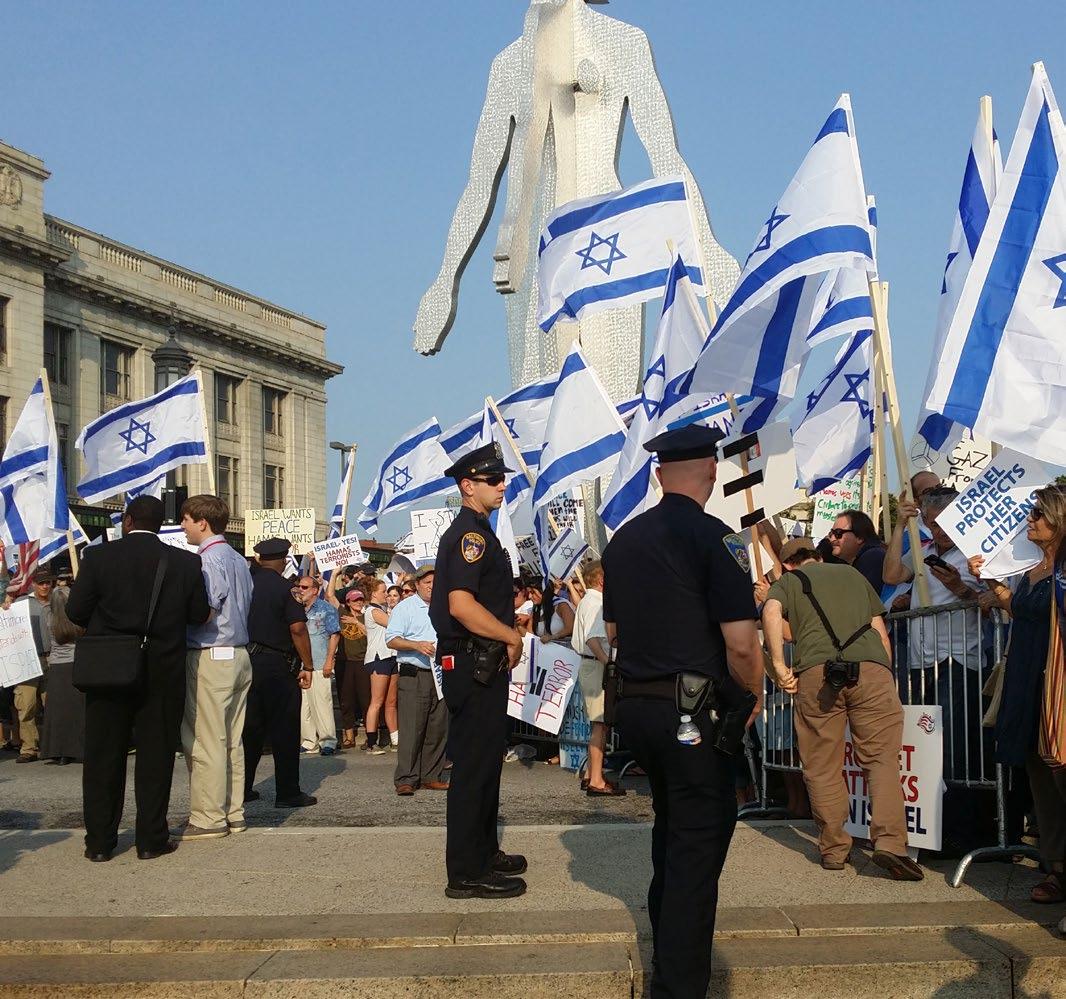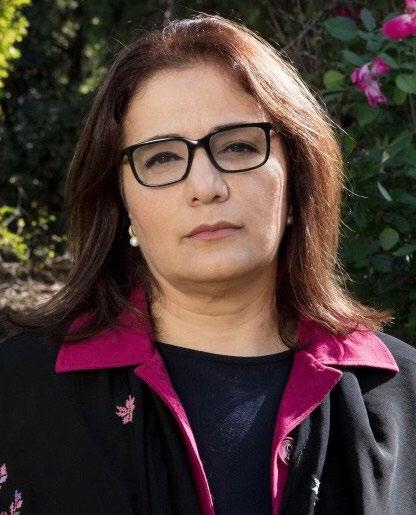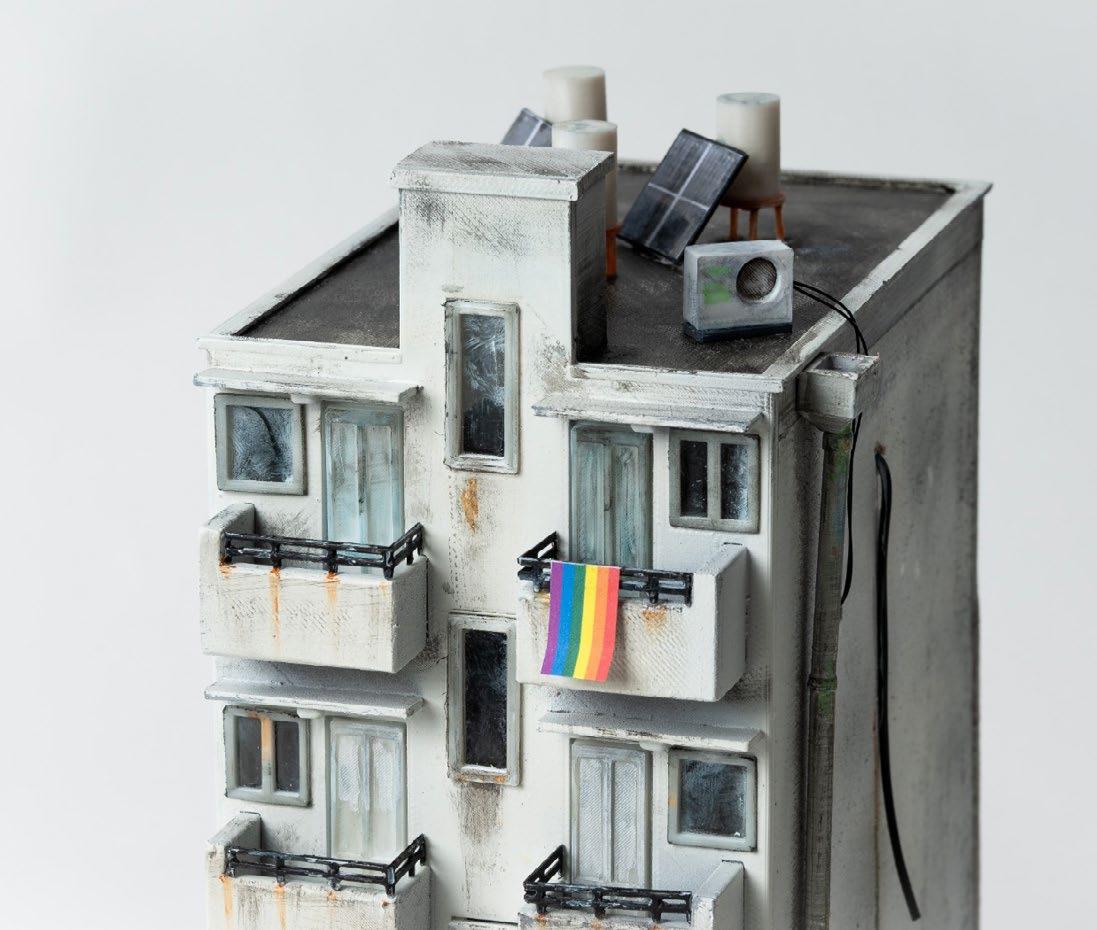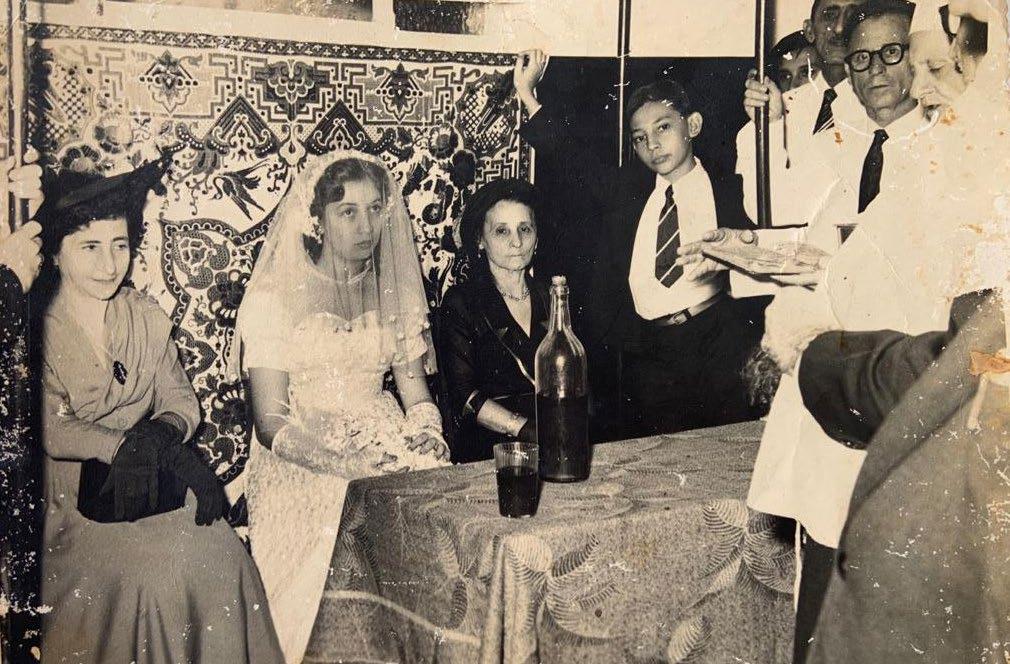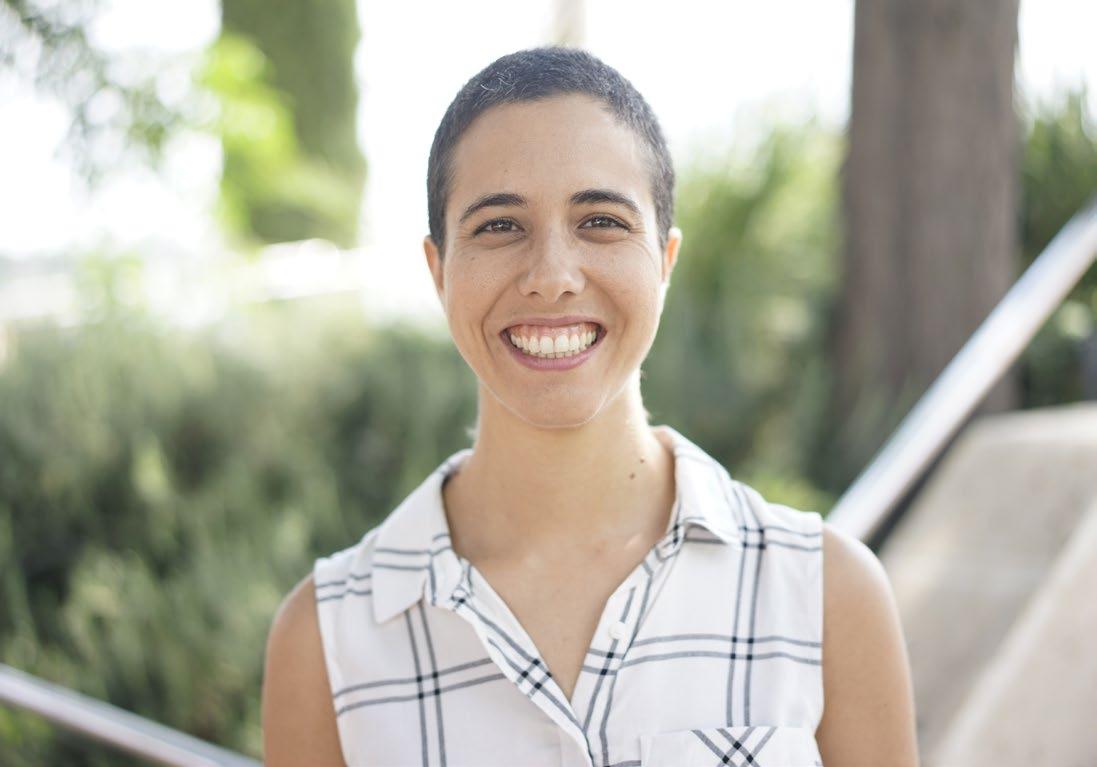
8 minute read
The Aguda
Established in 1975, The Aguda—The Association for LGBTQ Equality in Israel, acts as the umbrella organization of all Israeli LGBTQ organizations, grassroots movements, and communities that promote the welfare and rights of the LGBTQ community. Its mission is to achieve justice, equality, and inclusion for the LGBTQ community and to ensure LGBTQ visibility and affirmation. Over the years, The Aguda has guided alliance members to assist their capacity-building efforts and ability to work efficiently and with impact. It also works to create safe, inclusive, and affirmative environments for LGBTQ people by facilitating the development of local pride communities and providing direct services and supports that address a range of needs of the LGBTQ community in all its diversity throughout Israel.
The Aguda also works on public awareness and lobbying, to prevent discriminatory legislation, policy, and budgeting, to mobilize and increase resources for LGBTQ organizations, and to tackle public ignorance, hate speech, and hate crimes based on sexual orientation and gender identity.
Advertisement
Who are some of the communities that are most in need? Do you need to tailor your approach to assist these communities?
In the past five years, The Aguda has expanded and tailored its programs and activities to support and change the social and legal landscape for marginalized sectors of our LGBTQ community, including:
Transgender community. In the past year, and in collaboration with trans organizations, The Aguda opened a Therapeutic and Advocacy Interdisciplinary Transgender Center. It is a physically safe space that strives, for the first time, to place transgender identity at the center, responding to the needs of the community, as indicated in existing research and experience, while integrating a holistic approach to transgender individuals. The center provides diverse professional activities, social support groups and social events, and leadership training and mentoring. The center is one of a kind in Israel.
Israeli Arabs. There are approximately 190,000 Israeli-Arab LGBTQ (based on the statistical estimate that 10 percent of the adult population identifies as LGBTQ). They mostly live in regions marked by conservative social views, underscored by a lack of access to LGBTQ-affirming resources. Furthermore, they are a national, religious, and ethnic minority and, as such, are subject to institutional discrimination. In 2020, The Aguda established Beit elMeem (in Arabic: a home for LGBTQ), a Safe Space for Arab LGBTQ to access culturally and linguistically-responsive support. The service encompasses an Arabic hotline providing anonymous, confidential, and free crisis counseling, information, and referrals; clinical social-work services in Tel Aviv and Haifa (one-on-one support); and legal aid. To encourage help-seeking, The Aguda conducts social media and digital outreach, thus raising awareness of the service.
Asylum seekers. LGBTQ refugees and asylum seekers are one of the most marginalized groups in Israeli society, particularly those originating from Africa and Palestinians from the West Bank. The LGBTQ Asylum-Seeker Program of The Aguda was created to meet this population’s unique needs in a safe and accepting environment, separate from the general services available to refugees and asylum seekers. The program was established five years ago and focuses on providing psychosocial support to individuals, information and referrals to aid and legal organizations, information accessible to asylum seekers and the general public, and emergency financial assistance.
Learn more on The Aguda’s website, or check it out on Instagram and Facebook in English and Hebrew Yad Sarah
Yad Sarah is Israel’s largest volunteerstaffed organization, providing a wide array of compassionate health and home-care services for people of all ages, with special programs to support older adults and children or adults with disabilities.
Founded in 1976, Yad Sarah now has 122 branches throughout the country, staffed by more than 7,000 volunteers. Although the organization is best known for its extensive Lending Service for medical equipment—hundreds of thousands of items such as wheelchairs, crutches, and oxygen machines—its 7,000-plus volunteers also drive wheelchair accessible vans, taking the sick and injured to medical appointments. The professional staff and devoted volunteers also reach out to the homebound; advocate for elderly at risk for abuse; provide in-home geriatric dental care; staff a play center for children with special needs; help disabled people regain their independence through therapeutic programming at Day Rehabilitation Centers; staff an emergency home alarm center with thousands of subscribers; provide free legal aid to thousands of at-risk elderly through the Yad Riva Legal Services program; offer afterschool programming and parental guidance for families with children with disabilities; extend therapeutic support for couples and families coping with domestic violence; and offer free dental care to older adults living in poverty. More than 800,000 people receive help from Yad Sarah annually.
What is the most challenging aspect of providing service to those in need?
Our biggest challenge is keeping Israel’s diverse population out of hospitals to avoid overwhelming the system, which means we need to ensure they have appropriate services to help them manage as independently as possible at home.
Yad Sarah recently inaugurated its 122nd branch, located in Be’er Ya’akov, at Shamir Assaf Harofeh Medical Center. The location of this branch enables families to prepare for hospital discharge by borrowing necessary equipment, helping alleviate the oftenoverwhelming responsibility of caring for an ill relative.
The organization also offers a mobile dental clinic, providing in-home professional care to the isolated and homebound all over Israel. This is a vital service. Older adults with mobility issues may be limited in their ability to leave their homes, yet face pain and discomfort, leading to negative health outcomes. It’s a challenge to identify these people. They are often frail, impoverished, and unseen.

Other services include installing an emergency alarm response system, enabling older adults to quickly summon help. Sometimes, the Home Hospital team will have concerns about the vulnerability of a person who is older or disabled who may be abused or exploited by a friend or a family member. Oftentimes, shame limits people from seeking the help they need and deserve.
At Yad Sarah, we work to identify and support those in need. Providing compassionate, individualized care to the people of Israel is the most important thing we do.
To learn more, visit Friends of Yad Sarah.
Home Base
Home Base was established in 2013, to empower the homeless community in Israel by helping individuals to transform their lives and become fully functioning members of society. Many homeless people once had jobs and residences, but their living situation may have changed rapidly due to a variety of social and economic factors: serious family breakdowns, abuse at home, job loss, and mental health problems or disabilities. Home Base’s smallest aim is to build trust and give them a positive outlet for their energy. Over time, it helps participants to believe in themselves and develop basic life skills that may have gotten lost on the street, linking them with community and health services and providing mentorship services.
Home Base developed a unique model, harnessing the power of team dynamics and group activities as therapeutic and rehabilitative tools. The sense of camaraderie and achievement felt in the team environment fosters a sense of belonging, raises self-esteem, and builds trust and responsibility. The organization’s projects include soccer teams for adults and at-risk youth, the Halalu women’s choir, locker projects, street medicine with a team of doctors and paramedics, Friday meals for volunteers and homeless people, and work with prisoners to shape them into effective members of society.
Benefits of team-oriented activities for the homeless include an increase in physical and mental health; education about alcohol intake; decrease in drug use; team and relationship building; connections to social services, leading to the probability of receiving practical help; and location of stable, long-term housing and employment.
How did you build your program and attract participants with such a unique approach?
Home Base was created out of a desire to carry out a different type of “therapeutic” rehabilitation work with the homeless population, influenced by the “Homeless World Cup.” The idea was to use soccer as a therapeutic tool, one that enables direct contact with this sidelined population. The connection built serves both as a means and an end. Participation in the activity, and contact with the organization’s staff, is intended to be a significant part of the rehabilitation of the players and thus, their integration into society.
The model of our NGO is directly connected to the relationship between the staff, the volunteers, and the participants. All our staff members and volunteers play soccer with the participants, allowing openness, intimacy and, above all, informal eye-to-eye contact. The relationship created enables participants to open up to the staff members and volunteers, who can thereby understand their needs and help them as much as possible. The relationship is also a goal in itself, because most of the participants are separated from support networks and from the community and find it very difficult to create and maintain connections. We began by meeting homeless people in the streets and at local shelters. We simply invited them to come and play soccer with us, in the same way we did in childhood. Meanwhile, we managed to build a working relationship with the homeless unit of the Tel Aviv social service department for referrals. Within a few weeks, our first team was formed and weekly practices had begun.
See Home Base in action, and learn more here.
Igy
IGY is Israel’s national LGBTQ+ youth organization, empowering thousands of participants between the ages of 12–23 to create a leading role for themselves in a more accepting society, while supporting their own understanding of sexual and/or gender identity.
Founded in 2002, IGY’s nationwide network of volunteers and activities supports the creation of safe spaces in an often homophobic culture. Its work extends to all areas of Israel’s diverse society, including several support structures that focus on the unique needs of LGBTQ+ youth in Israel’s Orthodox Jewish, Arab, and Ethiopian heritage communities, respectively.
From its inception to the present day, IGY has been the only organization to work for LGBTQ+ youth in Israel. In recent years, it has grown to become the largest LGBTQ+ community organization in the country, with over 320 volunteers and over 4,000 youth members and participants taking part in activities throughout the year.
How has your work and the opportunities for your community changed over the past two decades? How has Israeli society shifted?
Israeli society has undergone multiple changes during the last two decades in terms of the mainstream attitude towards the LGBTQ+ community, many of them as a result of the local LGBTQ+ movement. From the country’s establishment until the late 1980s, being gay in Israel was illegal, and the LGBTQ+ organization had to operate under alternative names and deal with deep-rooted stigmas and unacceptance. It was only during the 1990s that Israeli leftwing Parliament members were able to decriminalize homosexual activity, cancel the ruling prohibiting LGBTQ+ soldiers from serving in the army, and thus allow the gay community to slowly find its way into mainstream public life.

Alongside legal progress the LGBTQ+ movement started fighting for its visibility through movies, TV, music, and culture.
Dana International’s (an Israeli transgender singer) win of the 1998 Eurovision song contest, along with a spontaneous protest against police treatment a few months later, led to the first Israeli Pride Parade in Tel Aviv. Although it might seem the Israeli LGBTQ+ movement has reached its main achievement, we see worrying backlashes from conservative public figures who are gaining strength in Israeli society, alongside many marginalized groups within the LGBTQ+ community (Orthodox, Arabs, transgender, and those on the geosocial periphery) who still suffer from violence, discrimination, and transparency. IGY has worked countrywide for the last 20 years to put a spotlight on the future of our community: LGBTQ+ youth and young adults, growing up all across the country, deserving a safe and equal society.
Learn more about IGY here.


